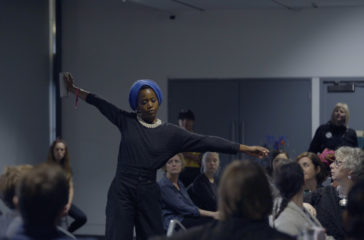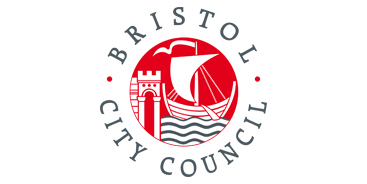Sumaya is a Bristol based mixed-medium creative whose passions are built predominantly from music, film, art and literature. She hopes that others can find company and comfort through her exploration of identity and creative expression, to encourage compassion and conversation. When she’s not thinking about her next meal or nap, she’s eager to get home, cuddle her cats and and binge a new series.
It’s important to acknowledge that being able to prioritise the climate crisis is a privilege. It’s a privilege to be able to fly, but also to be able to afford various travel alternatives. Too many people are struggling simply to survive our governments and social injustices. Sumaya Hassan-Murphy
‘Day two of the In Between Time Summit brought together international artists, activists, curators and community leaders, for a panel discussion exploring the role of art in changing the world. Persevering in what can often feel like a futile fight against climate change, speakers Judith Knight, Rita Marcalo, Chenine Bathina and Carla Denyer, joined with Ruth Ben-Tovim (Encounters and Culture Declares Emergency), Fehinti Balogun (Actor and XR Activist) and Kay Michaels (Letters to the Earth), shared how they maintain hope for the future, along with some of the things we can be doing to contribute to the betterment of our planet. While it’s of course within our right to pursue our creative passions, should we fail to act against the current climate emergency, success within our chosen sectors is meaningless. As artists we are in influential positions, with the potential to change attitudes and behaviours. We have the opportunity to platform important issues, increase civic engagement and reach those who are in positions of power to actually enact change. The creative arts in all it’s mediums are forms of storytelling. We need to be sharing stories that capture the severity of climate crisis implications, but speak into existence a future of hope whereby the worst potential impacts are avoided. It’s essential we are spreading positivity and speaking to the soul through our art, to help our hearts understand what we are aiming for as well as our minds.
In a more practical capacity, there are creative collectives in place working together to do just this. There are also things such as the No Fly Artist Database being developed, aiming to redirect artistic and performance opportunities locally, instead of flying out artists over long distances. It’s immensely important to be broadening our horizons – to learn from others who are more connected to a sustainable way of living. But with talks of non-essential flying regulations potentially being put in place, how will this affect cultural exchange that has enriched the arts? Who is to decide what is non-essential? It’s important to acknowledge that being able to prioritise the climate crisis is a privilege. It’s a privilege to be able to fly, but also to be able to afford various travel alternatives. Too many people are struggling simply to survive our governments and social injustices. Perhaps we can only understand and nurture the bigger body of the world after we have done the same for ourselves and our communities.
Although it can be easy to feel disheartened, in the end it will always feel better to be a part of the solution rather than having done nothing. By participating in dialogues such as this one, we are taking positive steps towards a healthier future. All of our thoughts and actions have an impact.’
Sumaya Hassan-Murphy
Instagram @sumaya_hmx
Film still (c) Sam Irving






